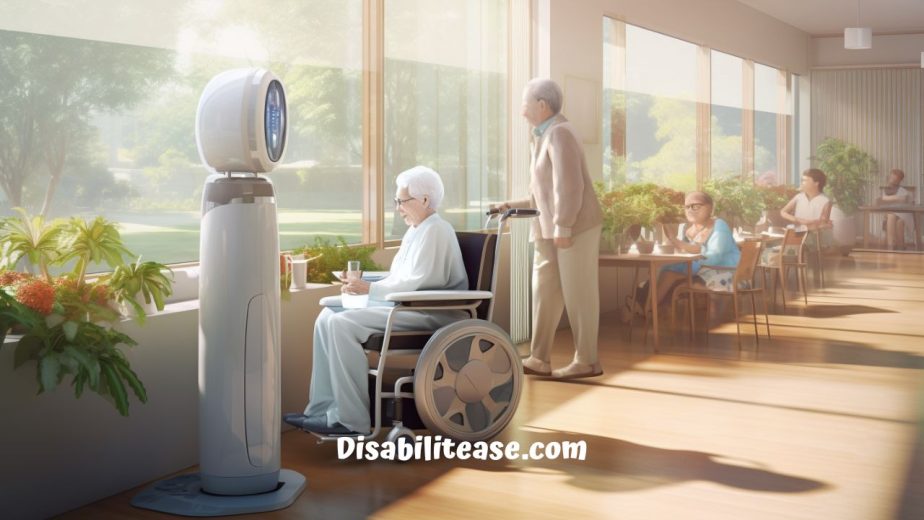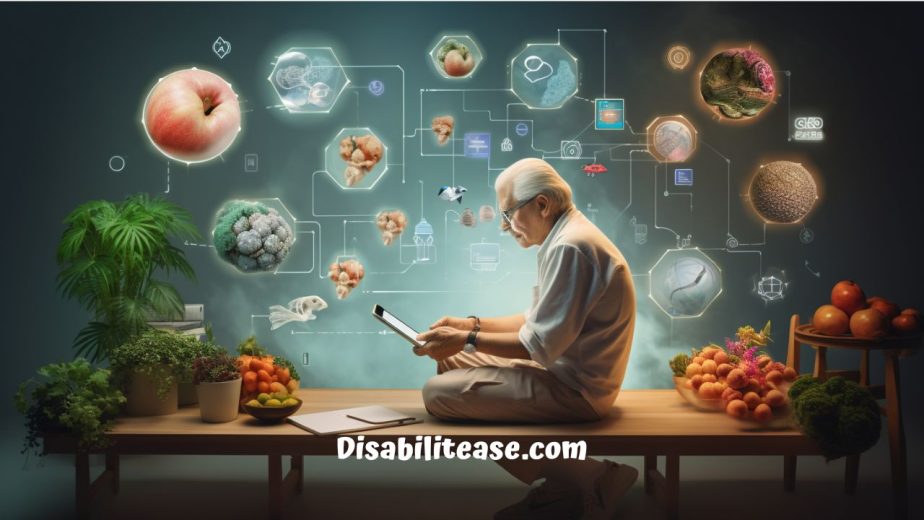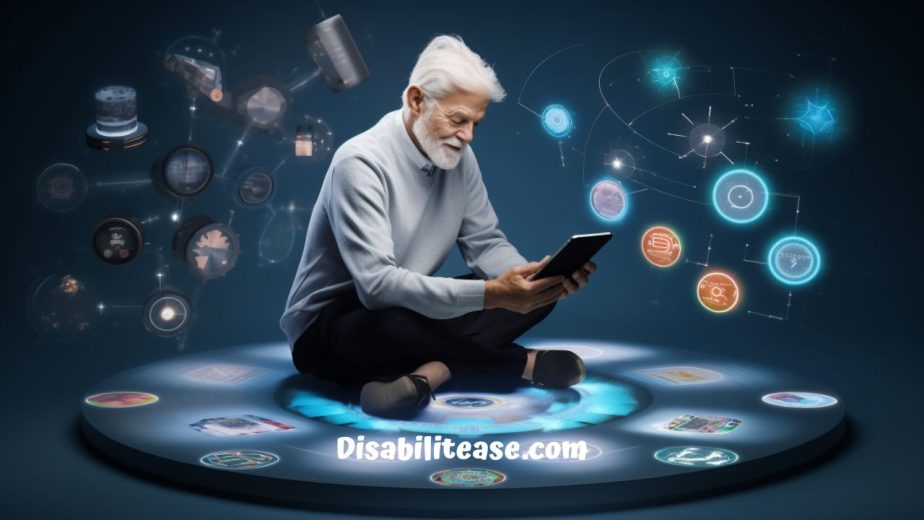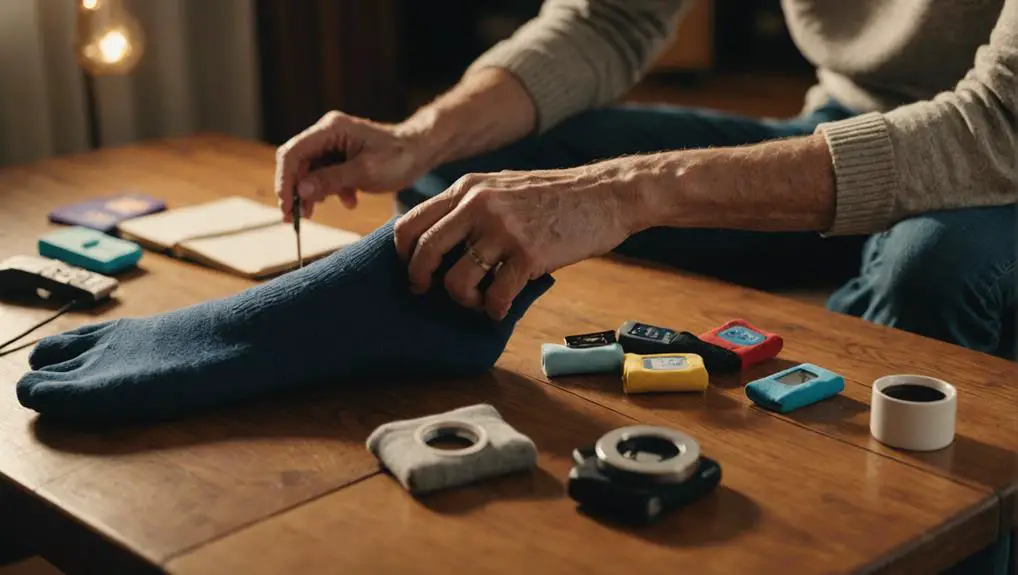You’re caring for aging loved ones and it’s tough. Imagine making it easier with artificial intelligence.
AI’s not just for techies anymore, it’s transforming senior care. From helping grandma stay independent to giving you peace of mind, AI tools are changing the game.

Stay with us as we explore the best AI tools and apps to enhance the quality of life for the elderly. You’ll see, there’s much more to this technology than you’d think.
Table of Contents
Understanding the Importance of AI in Elderly Care
You’re living in an exciting era where artificial intelligence plays a crucial role in elderly care, offering innovative solutions to enhance the quality of life for seniors and ease the burden on caregivers.
AI isn’t just about robots and smart devices; it’s transforming elderly care by providing personalized, data-driven insights that can help manage chronic conditions, monitor health, and even predict potential health risks.
AI-powered tools and apps are enabling seniors to age in place comfortably, reducing the need for frequent hospital visits.
But it’s not just about physical health. AI is also being used to combat loneliness and improve mental health among seniors, through interactive AI companions.
It’s a brave new world, and you’re at the forefront of this technological revolution.
Exploring 6 Various AI Tools for Long-term Care
Diving into the realm of technological innovation, let’s discuss how various digital solutions are transforming long-term care for seniors. Today, AI tools are becoming increasingly prevalent in elder care, offering a range of benefits that enhance the quality of life for the elderly and provide peace of mind for their loved ones.
Here are 6 AI solutions that are making a significant impact:
- Fujitsu’s Aging in Place Solution
Utilizes AI, 5G, and IoT for health monitoring and remote consultation. - Amazon’s Care Hub
An Alexa add-on that lets family members monitor elderly relatives, providing instant alerts when assistance is needed. - Apple Watch Fall Detection
Uses sensors and algorithms to detect hard falls, automatically sending emergency alerts. - Vayyar Imaging Ltd.
An Israeli semiconductor company, produces 4D imaging radar sensors initially designed for early-stage breast cancer detection but now adapted for uses such as senior care. Vayyar Care, the company’s solution for elderly care, uses non-contact sensors to detect when a senior falls and can’t call for help, a service that will be integrated with Amazon’s new subscription service, Alexa Together. When a fall is detected, Vayyar Care automatically contacts the Alexa Together Urgent Response emergency helpline and notifies the assigned caregiver. - Sensi.AI
Sensi.ai is the world’s first virtual caregiver for in-home use, providing audio-based trend analysis to help reduce risks and enhance well-being. It aims to supplement the capabilities of existing caregivers, assisting care agencies, caregivers, and families to make data-driven decisions. Through Sensi, elderly people can age comfortably and independently at home, receiving personalized care that respects their dignity. - The University of Waterloo’s in-home monitoring system
This AI tool can track activities and detect emerging health problems without the need for wearables or invasive cameras. It’s not just about tracking mobility or detecting falls, but also about spotting potential urinary tract infections or other medical conditions. This system operates 24/7, providing constant oversight and giving you peace of mind.
These technologies aren’t only improving care quality but also allowing seniors to age comfortably in their homes.
Revolutionary AI Therapy Apps Transform Mental Health
You’re entering an era where mental health support is at your fingertips. Welcome to AI therapy apps, your personal mental health guide. They’re non-judgmental, safe, and affordable, perfect for seniors like you.
Dive into the world of Wysa, Woebot, and RiseUp and see how they’re revolutionizing mental health treatment. AI therapy’s future looks bright; let’s explore it together.
Understanding the Concept of AI Therapy Apps

You’re stepping into a new era where AI therapy apps, powered by artificial intelligence and cognitive behavioral therapy, are revolutionizing the way mental health care is delivered.
Imagine having a personal therapist in your pocket, ready to help you navigate life’s challenges 24/7. That’s right, these apps are at your service round-the-clock, and no appointments are needed.
They’re based on cognitive behavioral therapy, a proven approach to addressing various mental health issues. You’ll find these AI therapy apps quite intuitive, with their natural language processing abilities providing prompts and responses.
And the best part? They’re usually more affordable than traditional therapy, making mental health care accessible for everyone.
As you can see, this isn’t just another trend. It’s a game-changer in mental health care.
The Role of AI Therapy Apps in Senior Mental Health
In today’s digital age, it’s remarkable how much of an impact these smart tools can have on the wellbeing of seniors, providing accessible, affordable, and personalized support for a variety of emotional and cognitive issues. AI therapy apps like Wysa, Woebot, and RiseUp are transforming senior mental health. They’re available anytime, anywhere, eliminating the barriers of time and distance. You’ll find them easier on the wallet too compared to traditional therapies.
Consider the table below:
| Benefits | Specific App Example |
|---|---|
| 24/7 Availability, Affordable | Wysa |
| Personalized Advice, User-friendly | Woebot |
| Mindfulness Techniques, Personalized Support | RiseUp |
These apps are revolutionizing how seniors manage their mental health, putting control back in your hands. Embrace the digital age, it’s making mental health care more accessible and personalized than ever before.
Exploring Wysa: A Revolutionary AI Therapy App
Diving into the specifics, Wysa offers a unique blend of artificial intelligence and human-assisted support to understand and respond to your emotions, thoughts, and feelings. It’s designed to provide you with personalized therapy sessions, right at your fingertips.
You’re offered activities like meditation, breathing exercises, and journaling that can help you manage your mental health. You’ll appreciate the anonymity Wysa provides, allowing you to express yourself freely without any judgment or stigma.
If you’re willing to upgrade, there are additional features like remote chats with a therapist. This app is more than just a tool—it’s your companion in mental health, available 24/7.
Wysa is transforming mental health therapy, making it accessible and stigma-free, all while maintaining a personalized and human touch.
A Closer Look at Woebot: Transforming Mental Health Through AI
Woebot, another helpful tool, uses cognitive-behavioral techniques and conversational AI to assist you in managing stress, anxiety, depression, and other emotional health challenges. It’s designed to be your personal, pocket-sized therapist, ready to chat whenever you need it.
It’s not a substitute for professional help, but it can be a lifesaver when you’re struggling and need immediate support. Woebot’s strength lies in its ability to provide instant, personalized advice. It helps you understand your emotions, giving you the tools you need to cope.
This handy app even provides educational resources, expanding your knowledge on various mental health topics. And the best part? You can use it daily, making it an integral part of your mental health routine.
RiseUp: Utilizing AI to Calm and Relax Your Mind
You’ve probably heard of RiseUp, a tool that uses technology to help calm and relax your mind. It’s not just any tool, it’s an AI therapy app designed to transform mental health. This innovative app does a lot more than just calm your mind:
- Personalized Support: RiseUp tailors its therapy techniques to suit your unique needs, helping to manage stress, anxiety, and depression effectively.
- Versatility: You can use RiseUp in conjunction with traditional therapies or as a standalone tool for self-care. It’s your companion, anytime, anywhere.
- Emphasis on relaxation: RiseUp doesn’t just aim to treat, but to instill calmness and relaxation, becoming a beacon of peace in your hectic life.
Try RiseUp, and let AI be your guide on the path to better mental health.
Comparing the Effectiveness of Various AI Therapy Apps
In your quest for better peace of mind, it’s essential to compare the effectiveness of various digital tools like Wysa, Woebot, and RiseUp.
You’ll find that each app offers unique features. Wysa mixes AI with human-assisted therapy, providing activities such as meditation and breathing exercises. You might appreciate the anonymity this app offers.
Woebot, on the other hand, uses conversational AI to provide personalized advice. If you’re a learner, you’ll appreciate the educational resources it offers.
Lastly, RiseUp emphasizes mindfulness and relaxation techniques. It’s a great companion for traditional therapy or a standalone self-care tool.
You’re not limited to one, try them out and see which app best suits your needs. Remember, your mental health is important and it’s okay to seek assistance.
The Future of Mental Health: Predictions for AI Therapy Apps
Looking ahead, it’s exciting to imagine how these digital tools might evolve and further shape the landscape of psychological support. As you consider the future, think about the potential advancements in AI therapy apps.
- Personalization: These apps could learn more about you over time, providing even more tailored advice and support.
- Integration: Imagine your AI therapist seamlessly connecting with other health apps, creating an interconnected network of support.
- Accessibility: As technology becomes more affordable, these apps could reach even more people, offering mental health support to those who need it most.
The future looks promising. Embrace the digital revolution in mental health, as it could change your life for the better.
AI Companion Apps: A Solution to Elderly Loneliness

Loneliness is a common issue among the elderly, particularly for those who live alone or far from their families. Thankfully, technology has offered a novel solution via AI companion apps. These apps use artificial intelligence to interact with users, providing company and even assistance with tasks. Let’s look at five of these AI companion apps that can help alleviate loneliness among the elderly.
- EllieQ: EllieQ is a friendly, interactive companion specifically designed for senior citizens. This AI-powered device aims to keep the elderly connected to their family and the outside world. It also assists them with daily routines, provides reminders for medication, and even suggests activities to keep them physically and mentally active.
- ChatGPT: ChatGPT is an AI chatbot developed by OpenAI. It’s designed to converse with users on a wide range of topics, providing companionship through conversation. For the elderly who may feel isolated, having a chatbot like ChatGPT can offer engaging conversation and combat feelings of loneliness.
- Replika: Replika is an AI friend who is always there to listen. It was designed to improve mental wellness and help users learn more about themselves. The elderly can engage in deep and meaningful conversations with Replika, ensuring they always have someone to talk to.
- Catalia Health’s Mabu: Mabu is a small robot assistant that provides personalized healthcare support. It helps manage chronic conditions by reminding users to take their medication and provides insights about their health to their care providers. Mabu can also engage in small talk, providing a sense of companionship to its users.
- Care.Coach: Care.Coach provides a virtual caregiver for the elderly. It offers companionship, health coaching, and round-the-clock monitoring. The avatar is controlled by real people, ensuring a genuine and empathetic interaction.
These AI companion apps not only offer companionship and interaction to the elderly, but they can also provide reminders for medication, assist with tasks, and even monitor health conditions. They serve as an effective tool in combating loneliness and ensuring the physical and mental wellness of the elderly population. As technology continues to advance, we can expect to see even more sophisticated and helpful AI companions in the future.
Highlighting the Benefits of AI in Senior Care
In considering the impact of tech advancements on senior care, it’s clear how the use of artificial intelligence can bring about significant improvements, especially in terms of providing timely and precise caregiver support.
AI solutions, such as Fujitsu’s aging-in-place solution or Amazon’s Care Hub, help you keep an eye on your elderly loved ones, providing alerts and ensuring their safety. Tools like Apple Watch Fall Detection can potentially save lives by automatically sending emergency alerts when a senior falls.
AI also offers valuable data-driven insights, helping you make informed decisions about the care of your loved ones.
However, remember these solutions, while helpful, also require careful consideration of privacy and ethical aspects.
With AI, you’re empowered to provide better, more responsive care for your elderly loved ones.
Discussing Challenges in Implementing AI for Elderly Care
Despite the promising benefits, there’s no denying that you’ll face certain challenges when implementing these advanced technologies for elderly care. It’s not always easy to integrate AI into the lives of seniors, especially when they might be resistant to such new and unfamiliar concepts.
- Resistance to Technology: Many seniors may not be comfortable with high-tech devices, leading to resistance or poor adoption rates.
- Privacy Concerns: AI often involves monitoring, which could raise serious privacy issues. It’s crucial to address these concerns and ensure that seniors’ rights are respected.
- Costs: AI solutions can be expensive. The costs of purchasing, installing, and maintaining these systems may be a barrier for some care providers or families.
Envisioning Future Possibilities of AI in Senior Care
Looking ahead, you’ll see a future where technological innovations, particularly those driven by artificial intelligence, play a pivotal role in transforming senior care. Imagine a world where AI companions combat loneliness, where early detection and diagnosis are the norm, and managing care becomes a seamless process.
| Future Vision | Emotional Response |
|---|---|
| AI companions combat loneliness | Hopeful, comforted |
| Early detection and diagnosis of health issues | Relieved, secure |
| Seamless care management | Empowered, confident |
| AI tools recognizing individual needs | Valued, understood |
| Remote AI solutions for independent living | Liberated, dignified |
As you can see, the future of AI in senior care is not only practical but also deeply emotional. You’ll feel more secure, understood, and valued. Most importantly, you’ll have the freedom to live a dignified life in the comfort of your own home.
Health Conditions Detected by AI and the Importance of Early Intervention
When it comes to the health of your elderly loved ones, early detection of conditions can be a game-changer, and this is where technology steps in to provide invaluable support. AI tools like the University of Waterloo’s in-home monitoring system can track activities and detect emerging health problems without the need for wearables or invasive cameras.
It’s not just about tracking mobility or detecting falls, but also about spotting potential urinary tract infections or other medical conditions. This system operates 24/7, providing constant oversight and giving you peace of mind.
With these advanced tools, you’re not just reacting to health crises, but proactively managing your loved one’s health, allowing for timely interventions and better overall care.
Frequently Asked Questions
How Can Elderly Individuals Be Trained to Comfortably Use AI Tools Designed for Their Care?
To train elderly individuals on AI tools, start with simple, hands-on demonstrations. Explain functions in plain language. Encourage them to experiment under guidance. Use patience and repetition, ensuring they’re comfortable before moving to the next feature.
What Measures Are Being Taken to Make AI in Elderly Care Affordable and Accessible to All?
To make AI in elderly care affordable and accessible, companies are simplifying tech interfaces, offering training for users, and developing cost-effective solutions. Government subsidies are also being explored to support widespread implementation.
Are There Any Specific AI Tools and Apps Designed to Combat Loneliness and Isolation Among the Elderly?
Yes, there are AI tools designed to combat loneliness in seniors. For instance, chatbots like ElliQ and AI companions like Care.Coach can engage in conversations and activities, reducing feelings of isolation and loneliness.
How Is the Effectiveness of AI Tools in Improving the Quality of Life for Seniors Measured?
You’d measure the effectiveness of AI tools for seniors by noting improvements in their daily living, like increased independence, better health monitoring, reduced isolation, and timely emergency responses, all contributing to enhanced quality of life.
Can AI Tools Be Customized to Cater to the Individual Needs and Preferences of Different Seniors?
Absolutely, you can customize AI tools to cater to individual seniors’ needs and preferences. Whether it’s adjusting alerts, setting reminders, or personalizing interactions, AI’s flexibility allows for such personalized adjustments.
How can AI be used to help the elderly?
AI can help the elderly in numerous ways including assisting in daily tasks, offering companionship, monitoring health, and providing safety measures such as fall detection and emergency alerts.
What is the AI software for the elderly?
There are a variety of AI software designed for elderly care, including health monitoring apps, virtual assistants like Amazon’s Alexa or Google Home, reminder apps for medication, and cognitive training apps to help with memory and mental fitness.
How is AI revolutionizing elderly care?
AI is revolutionizing elderly care by providing constant, 24/7 assistance and companionship, improving health monitoring accuracy, offering predictive analytics for early disease detection, and enabling elderly individuals to live independently longer.
What robots take care of the elderly?
Robots like the iRobot Roomba (for cleaning), the ElliQ (a social robot for companionship), and the Robear (a nursing care robot) are some examples of robots that assist in elderly care.
What is the best robot for the elderly?
The best robot for the elderly often depends on the individual’s needs. However, the ElliQ robot has received high praise due to its ability to provide companionship, cognitive stimulation, reminders for medication, and assistance with technology use.
Conclusion
So, you see, AI tools like Fujitsu’s ‘aging in place’ solution and Amazon’s Alexa Care Hub aren’t just tech buzzwords. They’re game-changers, offering immense benefits for senior care.
From detecting health conditions early to supporting daily living, AI is truly shaping a future where the elderly can age gracefully, safely, and independently in their own homes.
It’s an exciting time, and we’re only seeing the tip of the iceberg in terms of AI’s potential in elderly care.

Hi, my name is Eddie, I am a professional trainer specializing in the elderly population and I’m also a website designer. I love training in the gym, going to the beach, traveling, and having good food.
I combined my love for sport and website designing to make “DisabilitEase” whose purpose is to help elderly and disabled people live a more full and active life, have more fun, and enjoy their unique journey despite any disability.


